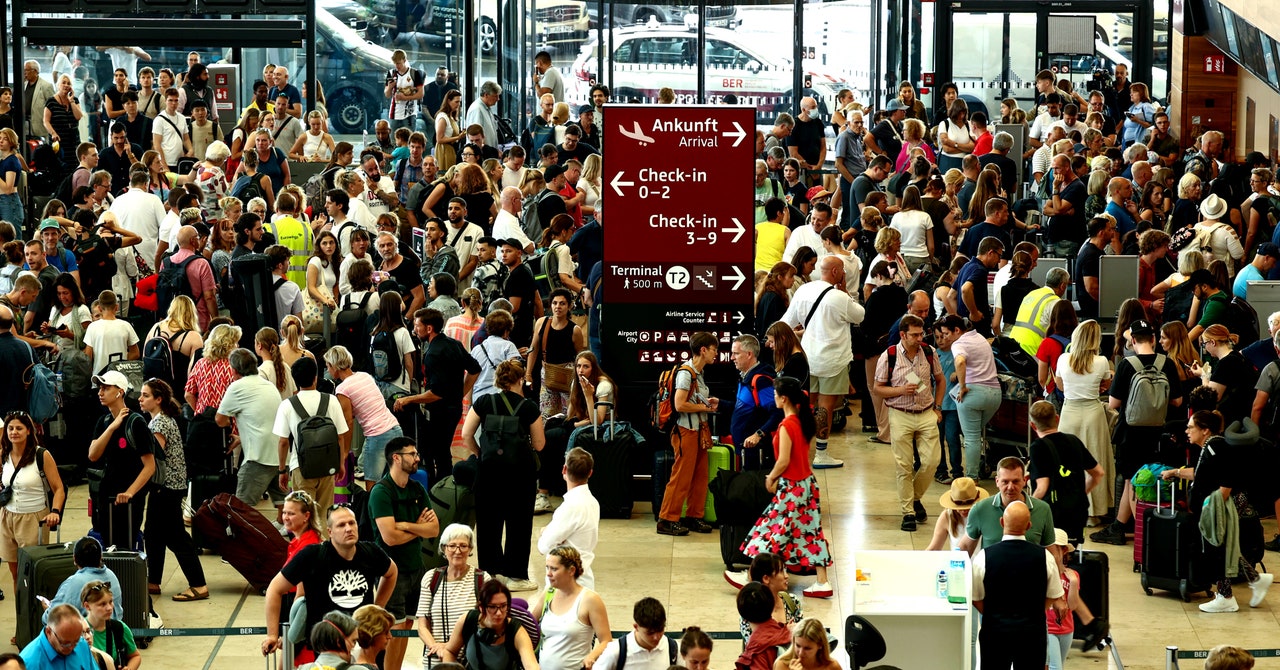
Early Friday morning, a flawed software update from the safety agency CrowdStrike took down Home windows computer systems the world over. For the aviation trade, the outage created the form of chaos often reserved for sudden, catastrophic climate—besides everywhere in the world, all on the similar time.
The outage highlighted an assumed however typically obscured truth of the aviation trade: The programs that hold you transferring out and in of airports are complicated, optimized for effectivity and revenue. For passengers, the upside of this method is decrease ticket costs. However the draw back is that if one a part of the system fails, the trade can grind to a halt.
That performed out in real-time on Friday. Within the US, all three main airways—Delta, American, and United—grounded flights for a number of hours. A handful of worldwide airports, together with Hong Kong International Airport, Kempegowda Worldwide Airport Bengaluru in India, and Liverpool’s John Lennon Airport, resorted to checking in passengers to flights by hand and urged fliers to indicate up properly earlier than takeoff time. By Friday afternoon, over 4,000 flights had been canceled and 35,500 delayed globally, according to the flight monitoring agency FlightAware.
“Earlier right now, a CrowdStrike replace was liable for bringing down quite a lot of IT programs globally,” mentioned a Microsoft spokesperson in an announcement. “We’re actively supporting prospects to help of their restoration.”
Delta, American, and United might have suffered extra cancellations than different airways (together with easyJet, Allegiant Air, and Southwest) due to their “hub and spoke” mannequin. This technique concentrates flights and crews in a couple of main airports—the hubs—and will increase the chance that passengers touring outdoors of the hubs must make connections via them. This centralization permits airways to supply passengers extra flight choices, albeit via connections, and to pay attention their upkeep and ground-handling providers in fewer locations, saving them cash.
As a result of the hub-and-spoke system is so depending on rapidly getting flights out of busy hub airports, airways have come to depend on quite a lot of automated programs to verify passengers in, to replace them on boarding planes or delays, to get baggage handlers in the precise place on the proper time, and so forth, says Michael McCormick, a professor and coordinator of the Air Site visitors Administration program at Embry-Riddle Aeronautical College. “Automation is important to airline operations,” he says.
However automation requires computer systems. When these computer systems go down at a given airport, the consequences can cascade, and delays pile up. However after they go down at hubs, all the aviation system will get throttled. This occurs even when the applied sciences used to fly and direct planes whereas within the air are unaffected. For instance: The US Federal Aviation Administration posted on X on Friday morning that it was “not impacted by the worldwide IT subject.”
Aviation trade complexity additionally strikes properly past computer systems. Airports are typically likened to little cities, and for good cause: Although the airways are the “manufacturers” that fliers work together with most frequently, loads of completely different companies assist get planes within the air. And a few of them, it seems, depend on CrowdStrike.






